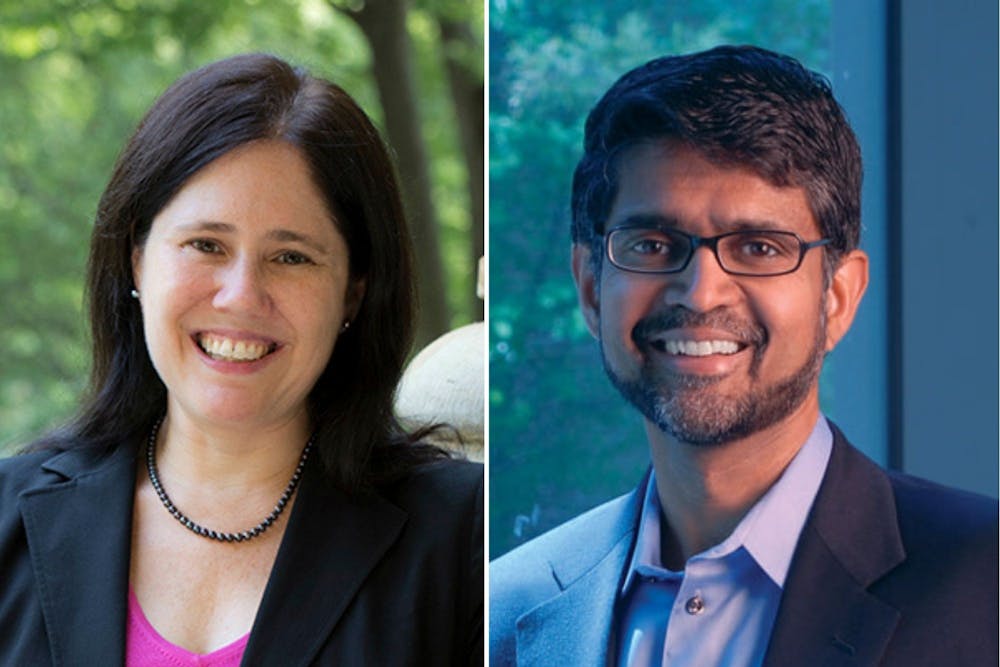Penn administrators discussed the progress women in STEM have made in recent years while acknowledging that there is more work to be done toward inclusivity at a virtual event.
The Tuesday event, titled “Sustaining Women’s Progress in STEM – Students, Staff & Faculty: Share Voices,” featured Engineering Dean Vijay Kumar and Deputy Provost Beth Winkelstein. The fifth annual event, which is held every March in honor of Women’s History Month, was co-hosted by the Office of Affirmative Action and Equal Opportunity Programs and the Weingarten Center.
From 2011 to 2018, Penn saw a 22% increase in the number of female standing faculty members. The American Society for Engineering Education also found that from 2017 to 2018, 20% to 26% of bachelors, masters, and Ph.D.s in engineering nationally were awarded to women, compared to 18% to 23% ten years prior.
Winkelstein said that while women now make up a larger share of professors in STEM fields, the growth has been uneven across professor ranks, race, and field of engineering.
In the keynote address, Kumar noted that even with increases in women’s education, there is still a lack of women in STEM fields — only 13% of the engineering workforce and 26% of computer scientists are women.
Kumar said diversity in engineering is an absolute necessity, adding that the quality of engineering is deeply affected by diversity or the lack thereof. Diverse groups produce better, more inventive solutions than groups with stereotypical thinking, Kumar said.
While he lauded the growth of female enrollment in Penn Engineering, which currently stands at about 40%, he said he would not be satisfied until the school reached true gender diversity.
Winkelstein and Kumar said that in order to become more diverse, the University must set concrete goals for itself. Penn set a goal to increase the number of women in prominent positions, which has led to the hiring of more female department chairs and associate deans at Penn, Kumar said.
RELATED
Philadelphia ranks third best city for diversity in STEM
STEM students report being slammed by hours of added virtual class content
He also praised Advancing Women in Engineering, which he said has greatly contributed to creating a vibrant community of women on campus. AWE is a program that creates support initiatives and promotes enrollment and engagement of all female students at Penn Engineering.
During the event, Winkelstein also discussed her journey as a woman in STEM, beginning with her graduation from Penn Engineering in 1993.
As an undergraduate, Winkelstein spent summers volunteering in a bioengineering lab before pursuing a Ph.D. at Duke University, studying a macroscopic approach to engineering. Winkelstein said she was the only woman in her lab group at Duke, but over time, she found many female mentors and students to build a supportive professional and social network.
While serving as an editor for the Journal of Biomechanical Engineering, Winkelstein said she watched the number of female editors grow from two of 24 to eight of 28, demonstrating women's growth in the field.
“[Increasing diversity] requires making small scale actions, and that's where I've sort of been able to see moments of making the change,” Winkelstein said. “If I'm leaving you with anything, I'd like you to think about how we can make small changes to actually move the entire enterprise.”









